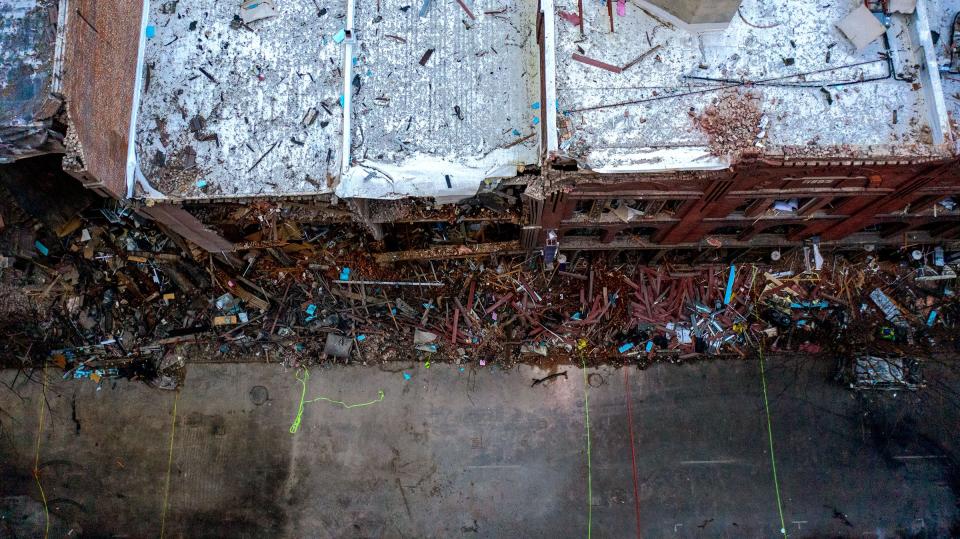Tennessee made strides in 911 infrastructure, but more digital innovation is key | Opinion
There are not many numbers that immediately resonate with every single American quite like 911.
When our lives are on the line, whether it's a burglary of Christmas gifts, a car accident, or a neighbor’s loud barking dog, we rely on 911 to keep us safe in times of crisis.
But our nation’s 911 infrastructure was built in the 1960s for landline phones, requiring citizens to verbally speak critical data to responders in a stressful emergency. This results in dispatching delays, difficulty in pinpointing a specific location of an incident, and emergency responders arriving on a scene either under informed or misinformed.
At a time when your smartphone can tell Facebook, Instagram, and various games where you're located with amazing accuracy – why do our 911 dispatchers, the unsung heroes of local communities, function without access to the latest technology to save those in times of crisis?
Hear more Tennessee Voices: Get the weekly opinion newsletter for insightful and thought provoking columns.
Here's the progress Tennessee has made
One of the ways to innovate our state’s public safety efforts is to lean into strategic public-private partnerships, where government agencies and private companies can collaborate to address our community’s 911 challenges.

With the recent passing of the tragic Nashville Christmas bombing two-year anniversary, state officials have certainly made impressive strides to hardenourstate’s911 infrastructure following the tragedy, but more work can be done.
It's time to invest in the best digital resources that transform the very systems that allow 911 telecommunicators and first responders to save lives.
After years of research, development and design in direct partnership with the public safety community, RapidSOS developed the first-ever intelligent safety platform that makes it possible for 911 centers to instantaneously be armed with data from the various connected devices we use every day, to address callers swiftly and efficiently.
Sign up for Latino Tennessee Voices newsletter:Read compelling stories for and with the Latino community in Tennessee.
The company’s technology platform protects 97% of the U.S. population right now via data from 500 million connected devices, apps, and sensors, helping 15,000-plus first responder agencies to modernize their technology stacks. RapidSOS technology is integrated into leading smartphones and smart watches, smart home security systems, connected vehicles, medical devices, and popular ride-share and food & grocery delivery apps.
And the implementation of this type of technology is even better in Tennessee. In fact, the platform protects Tennessee’s population in times of crisis. From Memphis to Bristol, first responders now use RapidSOS to address 1 million-plus incidents annually.
Sign up for Black Tennessee Voices newsletter:Read compelling columns by Black writers from across Tennessee.
Public safety cannot rest on its laurels
Our country is at the cusp of a dramatic shift in the 911 space.
Today, when dialing 911 on the phone, the caller has to verbally communicate what he or she sees to the 911 call taker, who in turn writes the information down and manually passes that information over to the dispatchers and first responder.
It sounds archaic that emergencies rely on the limited context of a phone call, but it doesn’t have to be that way. As our world becomes more complex, we must double down on efforts to modernize our 911 infrastructure.

As a native Tennessean and longtime member of the state’s public safety community, it is empowering to know that we are leading the way in technology adoption and strategic partnerships that dramatically impact the way 911 protects us.
Jamison Peevyhouse serves as the vice president of public safety for RapidSOS, the first emergency response data platform securely linking data to 911 and first responders nationwide.
This article originally appeared on Nashville Tennessean: Tennessee made 911 infrastructure progress, but more innovation is key

